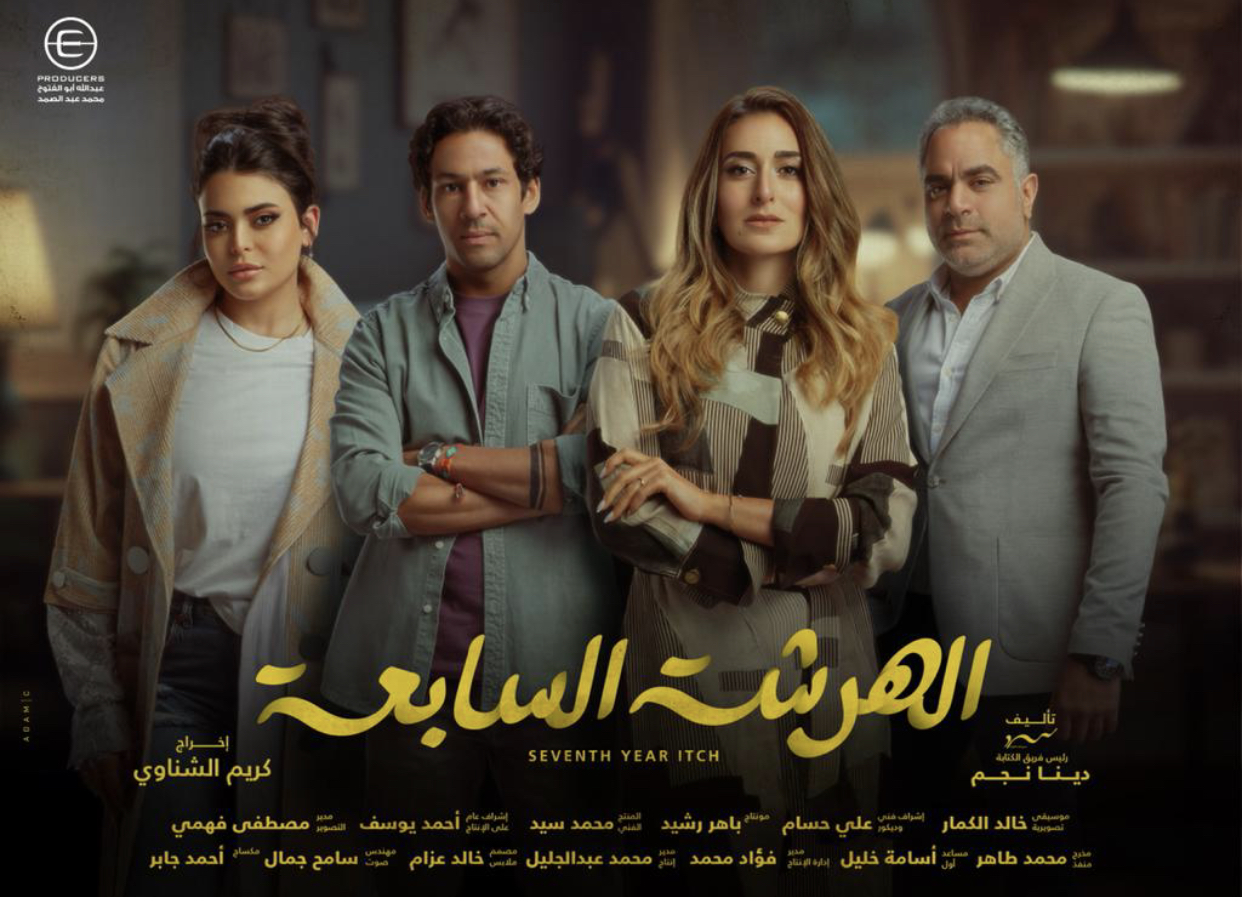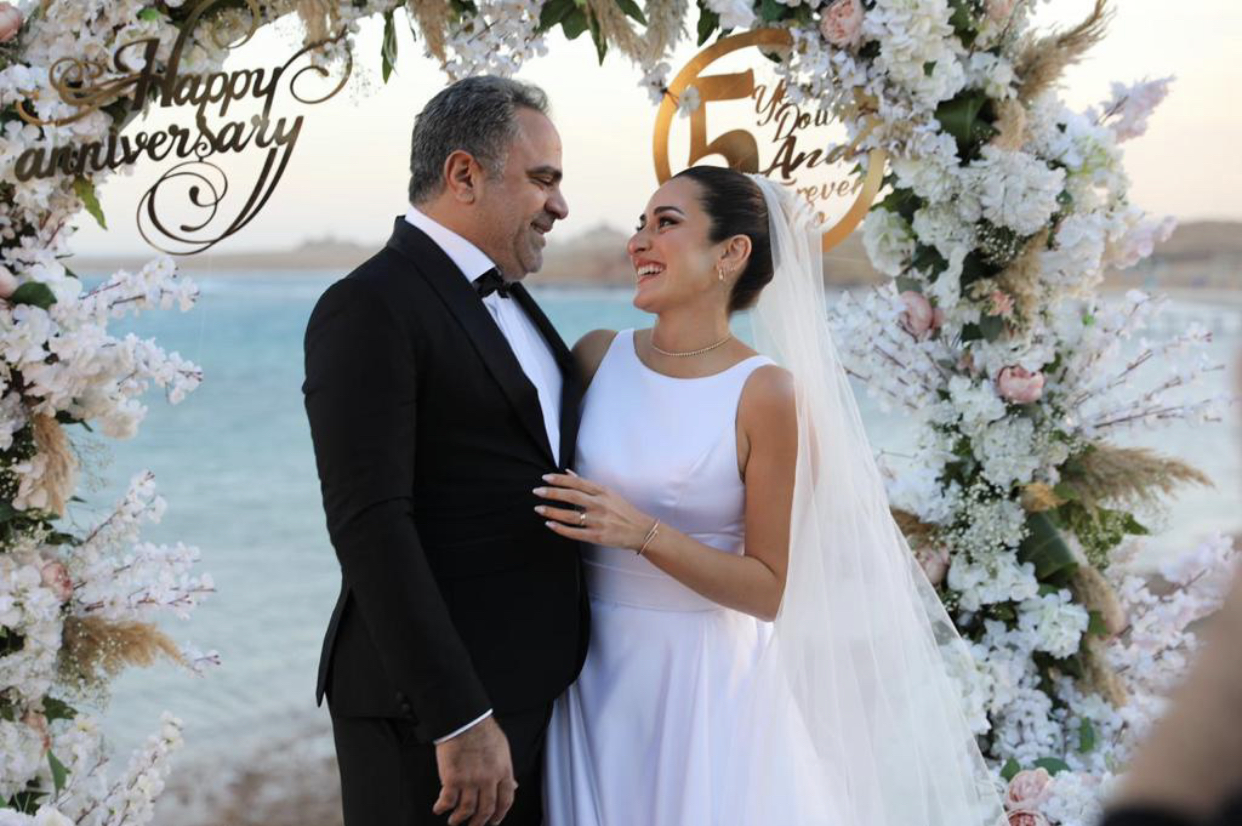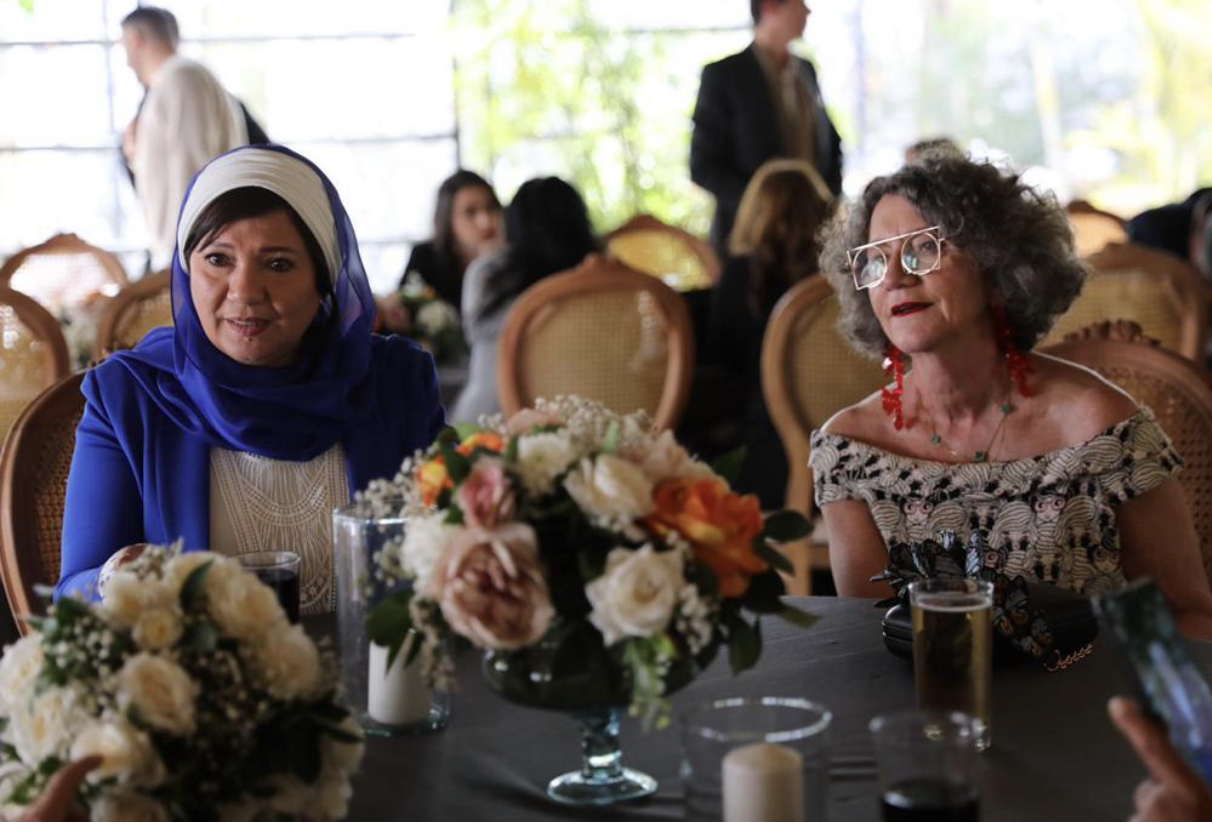Series Review Khalid Ali, Film and Media Correspondent
Reflections on Seventh Year Itch (TV series, directed by Karim El Shennawy, Egypt, 2023) available on Shahid MBC
Integrating medical education with arts and humanities has provided great opportunities for medical students to hone their communication skills and desirable qualities such as respect and empathy.1 Combining the analytical mind of a scientist with the reflective abilities of a ‘medical humanist’ has the potential of producing a ‘good doctor.’2 The public value interpersonal skills as important traits that ‘good doctors’ should have.3 Theatre, film, TV, and medical encounters all share the common theme of ‘storytelling’. In this article, I review Seventh Year Itch an Egyptian TV series (figure 1) portraying several concepts that are core skills for medical students.

The series follows two couples Nadine (Amina Khalil), Adam (Mohamed Shahin) (figure 2), Salma (Asmaa Galal) and Sherif (Aly Kassem) all going through a marital crisis. Their respective families, psychologists and counsellors help them navigate their frustration and despair. Tensions arise when Nadine becomes a mother for twin boys and later when she pursues a professional career providing ‘voiceover’ in commercial adverts without Adam’s blessing. Salma feels betrayed when Sherif’s past resurfaces; Julia (Roya Hashmi) is Sherif’s 16-year-old daughter from a one-night stand when he was a teenager. Salma is also estranged from her biological mother but has Fifi (Hanan Suliman) as the God mother she loves and trusts. Nadine’s parents, Ibrahim (Mohamed Mahmoud) and Hanaa (Aiyda Riyadh) are also going through turbulent times and end up divorcing. The secrets and lies in these characters’ lives are cleverly revealed in a linear chronological narrative that is reminiscent of Ingmar Bergman’s TV series Scenes from a Marriage (Sweden, 1973), and Woody Allen’s film Husbands and Wives (USA, 1992).

Salma and Sherif’s therapy sessions with their psychologists, and marriage counsellor are master scenes in how to ‘take a patient’s history’ by focussing on ‘what matters to them’. Hala (Marwa El Sawy), Salma’s therapist probes deeply into Salma’s childhood trauma, and encourages her to reflect on her upbringing to find peace.
Nadine starts recording a podcast series on ‘failed marital relationships’ by interviewing friends and family. Here again targeted questions, silent interludes and active listening provide space for the viewer to emotionally invest in the characters’ stories. Our deeper knowledge leads to ‘empathy’; an attribute that is highly relevant to practicing ‘good medicine’.
The clever use of symbols and attention to details are key skills for ‘good doctors’ who are expected to spot subtle hints in patients’ narratives and translate them into a ‘focussed history’. The scene where a balloon floats in the air between Salma and Sherif symbolises the ‘trust’ that is lost between them.
‘Avoiding judgement’ is the method that the script writers, Mariam Naoum, and Dina Nejm use to tell a compelling story. The civilised relationship that exists between Sherif’s divorced parents, Hilal (Ahmed Kamal), and Maggie (Miryam Gouhar), and Nadine’s parents Hanaa and Ibrahim implies that no partner should be labelled as ‘the villain’ after divorce. A ‘non-judgmental’ approach is another attribute that doctors should exercise in delivering compassionate care.
Karim El Shennawy, the series director, is elegantly supported by the music composer Khaled Al Kammar in conveying the protagonists’ contradicting emotions in a sensitive, unhurried fashion that enhances our understanding of these troubled souls. ‘What’s left unsaid’, the title of episode 6 sums up the fact that the viewer is encouraged to ‘fill in the gaps’ of what is ‘missing’ from the plot as an active participant. The four lead actors, Khalil, Shahin, Galal and Kassem deliver career-best performances, while Riyadh, Gouhar (figure 3) and Suliman shine as the doting mothers.

In a poignant scene, Adam tells his twin sons Saleh and Hashem a bedtime story ‘The Frog and the Stars’, where a frog dreams of touching the stars and ends up realising that he can touch the stars’ reflection on the lake next to him. While telling that story, Adam realises that he is ‘the frog’ in real life, by not being mindful of how close his source of happiness was, namely his wife and sons. Adam’s honest observation, by regretting the divorce, represents another important medical profession quality which is ‘reflective practice’.
A study by Hammer et al at the Mayo Medical School in partnership with the Guthrie Theatre in Minnesota, USA showed that ‘theatre training’ can be employed effectively in improving ‘case presentation’ skills for medical students.4 I argue that watching Seventh Year Itch can be beneficial for medical students and doctors in communicating, and empathising with patients, as well as enhancing their storytelling skills.
References
[1] Steiner-Hobfauer V, Schrank B, Holzinger A. What is a good doctor? Wien Med Wochenschr 2018; 168: 398-405.
[2] A. Borracci R, M. Alvarez Gallesio J, Ciamborne G, et al. What patients consider to be a ‘good’ doctor, and what doctors consider to be a ‘good’ patient. Rev Med Chile 2020; 148: 930-38.
[3] S. Grundnig J, Steiner-Hofbauer V, Drexler V, eta l. You are exactly my type! The traits of a good doctor: a factor analysis study on public’s perspectives. BMC Health Services Research 2022; 22: 886.
[4] Hammer R R, Rian J D, Gregory J K, et al. Telling the Patient’s Story: using theatre training to improve case presentation skills. J Med Ethics; Medical Humanities 2011; 37: 18-22.